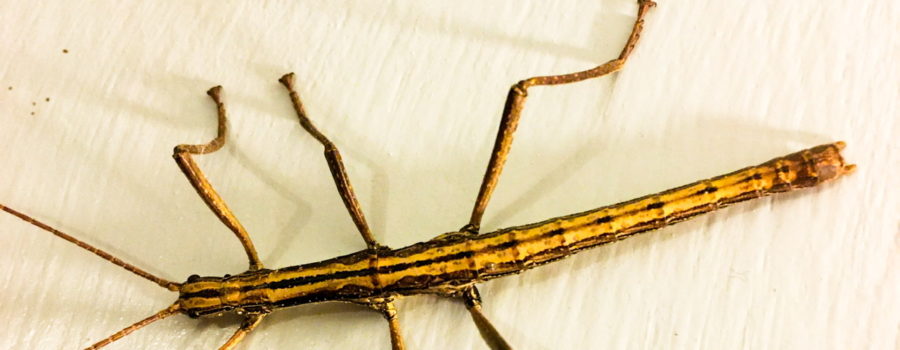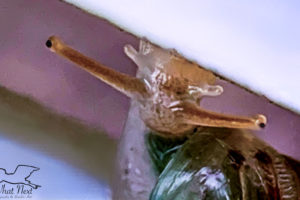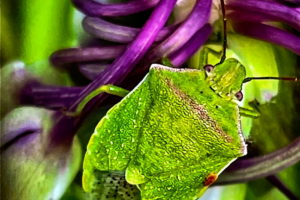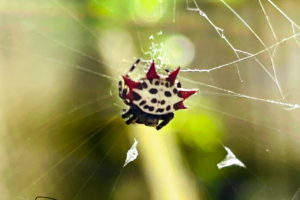How to Deal With a Walking Stick in the Bathroom
A few weeks ago, as I was climbing out of the shower after a particularly long day at work, I reached for my towel, and behind it, I found a beautiful example of a Southern two-striped walking stick. I had seen these guys before, but usually outside on the trees, in the palmettos, and in the rosemary that grows wild around here. They live on these plants and feed on the leaves. Luckily, though, even in relatively large numbers, they don’t do much damage to the plant, so they are not really a problem. This was the first time I had ever seen one in the house, and because it was on my white wall, it was easy to photograph, so of course, I did!

After I got my pictures and had dried myself off, and dressed, I got a large cup and scooted my uninvited guest into it for a trip outside. Walking sticks don’t bite or sting, but they do defend themselves. To do that, they excrete a thick, whitish fluid from glands that they have on the underside of their thorax (that’s why they are also sometimes called musk mares). They can shoot this fluid up to fifteen inches, and they have amazingly good aim with it. The fluid has a smell that I don’t much mind, but is apparently considered unpleasant by most birds, snakes, lizards, rats, and other insects that would prey on them. So if that is their only defense, why the cup, you might ask. The fluid won’t harm skin, but it can be very, very painful if it gets in the eyes. So to protect my eyes, I chose to use the cup!
Once my little guest was safely back outside, I sat down to study my photos, and I realized that I had been host to a single female. The female walking stick is much larger than her male counterpart, and you often see them together with the smaller, slimmer male riding on her back. Once they pair, they remain paired until one of them dies. It’s actually kind of unusual to see a full grown female, like my little friend, without a male with her. I had to wonder what had happened to her mate. I hope she had managed to lay her eggs before he died! I guess I was always the little kid who loved to study bugs (and any other living thing around), so I worry about these things. What about you?





Recent Comments